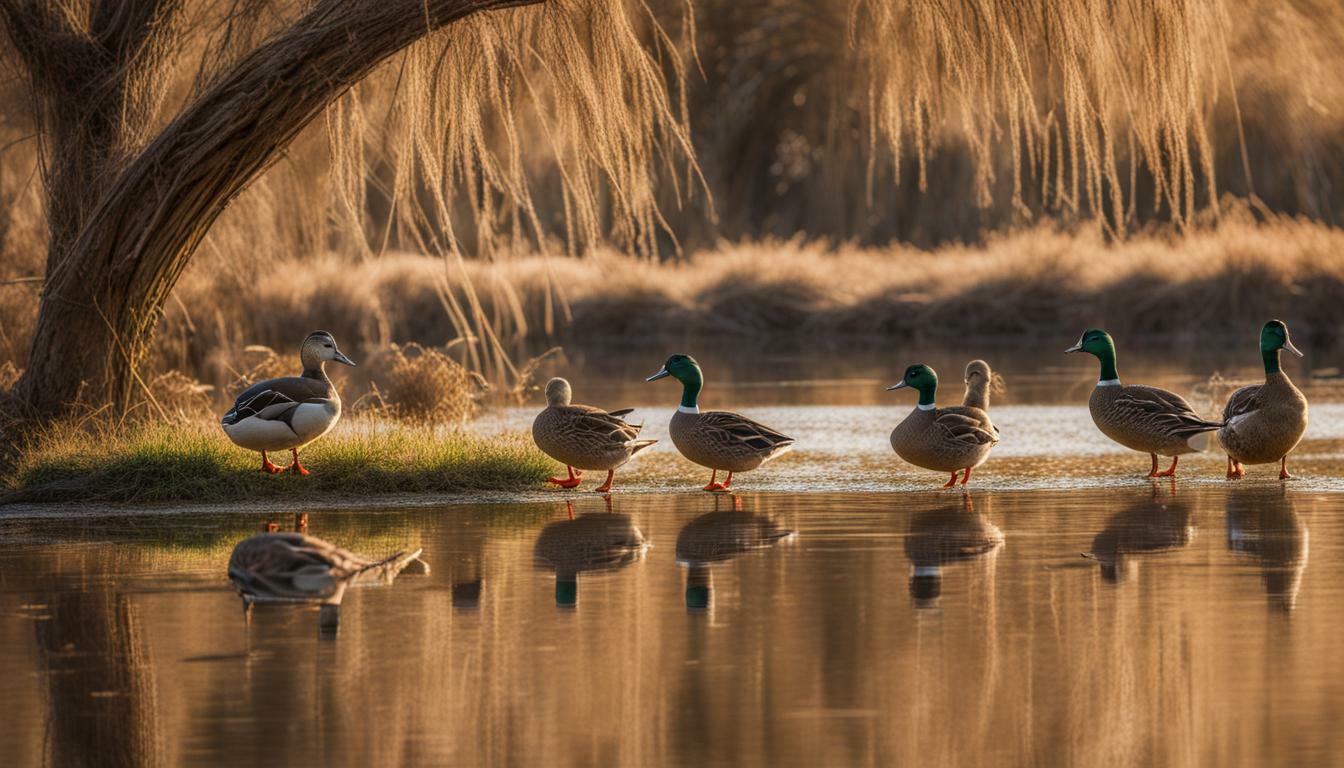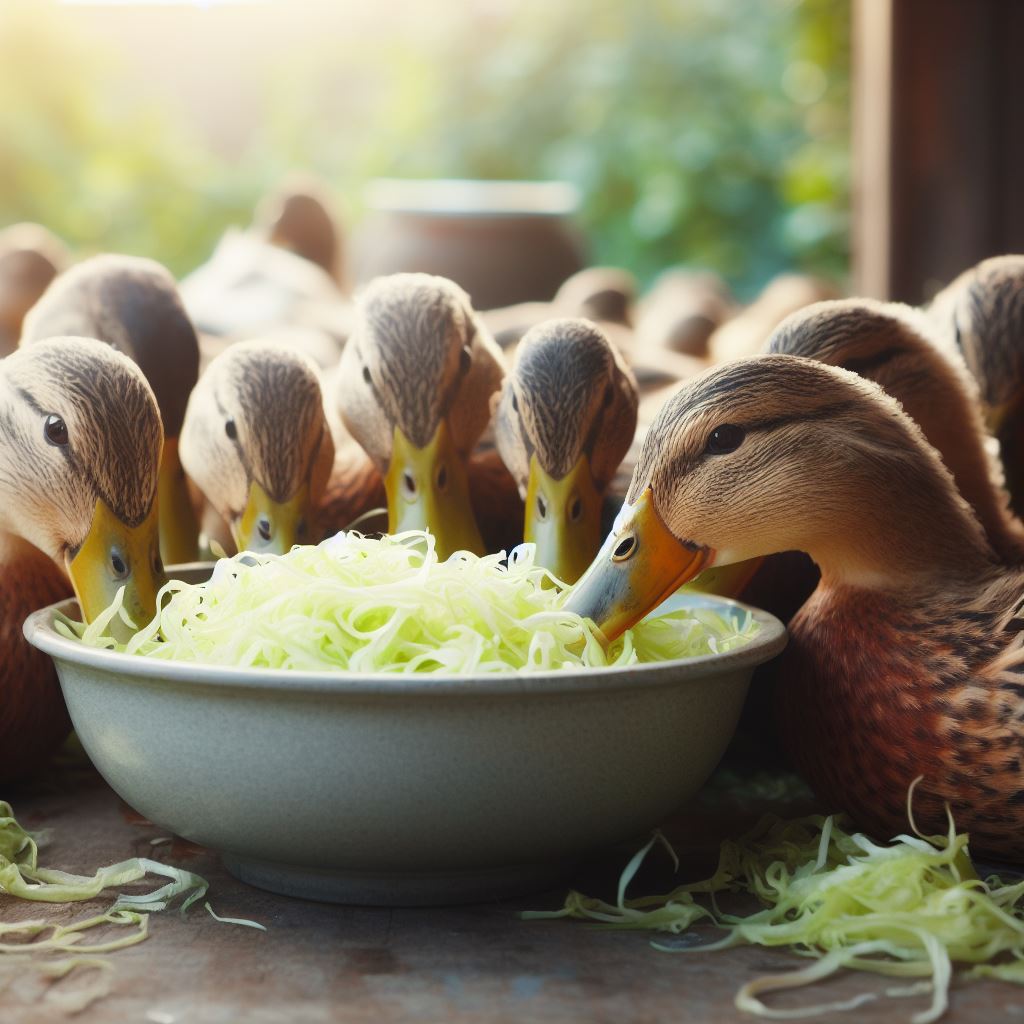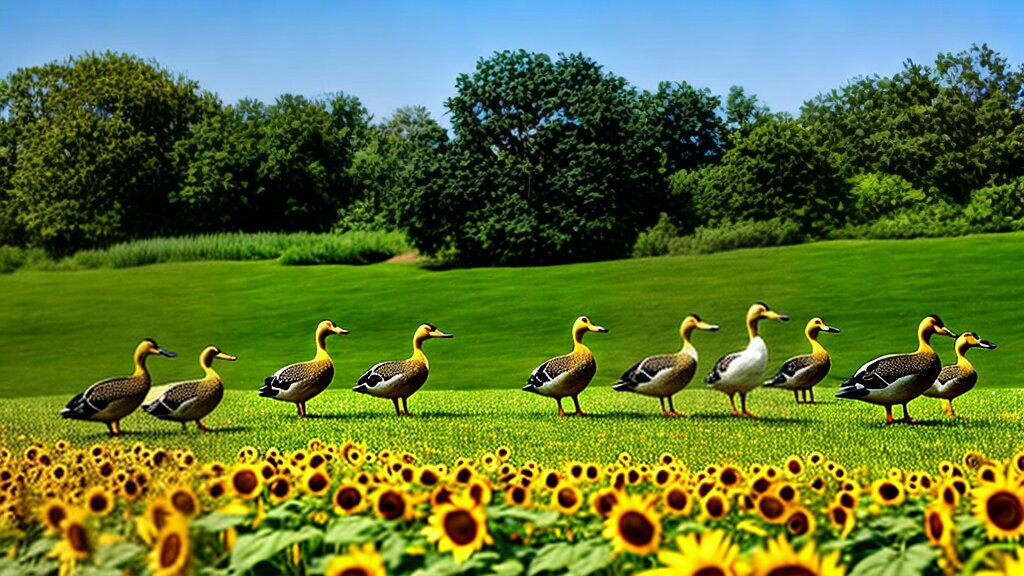How Long Can Ducks Go Without Food?

Table of content:
- How Many Days Can a Duck Go Without Eating?
- What Do Ducks Eat in The Wild Daily?
- How Long Can Ducklings Go Without Food?
- Do Ducks Need to Eat Every Day?
- How Often Should You Feed Ducks?
- What Happens If You Don’t Feed Ducks?
- Can Ducks Survive Without Food?
- How Long Can Ducks Survive Without Water?
- Do Wild Ducks Eat Every Day?
- How Do Ducks Find Food in Winter?
- Final Thoughts
Ducks are resilient birds that are well adapted to going through periods of time without food. However, there are limits to how long they can survive without eating. In this article, we’ll explore how long ducks can go without food, what affects their ability to fast, and how to ensure your ducks are getting the nutrition they need.
How Many Days Can a Duck Go Without Eating?
The average healthy duck can generally go 2-3 days without eating before they starts to become weakened and their health is put at risk. However, many factors play a role in determining exactly how long a specific duck could survive without food.
Factors That Influence Fasting Ability
Some key factors that impact how long a duck can go without eating include:
- Age – Ducklings and younger juvenile ducks have higher metabolisms and less fat stores, so they cannot go as long without food as adult ducks. Ducklings should eat daily.
- Health Status – Sick or injured ducks will become weakened much faster when deprived of food than perfectly healthy ducks.
- Weather Conditions – Cold weather increases a duck’s energy needs for thermoregulation, meaning they will need to eat more often. Hot weather can also be taxing.
- Physical Condition – Overweight, well-fed ducks with large fat reserves can go longer without food than undernourished or skinny ducks.
- Species – Some species are heartier and better adapted to food scarcity than others. For example, muscovy ducks handle fasting better than lighter ducks like runners or calls.
- Access to Water – Ducks deprived of both food and water will deteriorate rapidly. Clean water is essential at all times.
So while 2-3 days is a general guideline, a perfectly healthy, adult, well-fed duck in ideal conditions could potentially go 4 or more days without eating before experiencing serious health effects. However, faster deterioration can happen if any adverse factors are present.
What Do Ducks Eat in The Wild Daily?
In their natural habitat, most ducks do not eat daily. They often go 1-3 days between finding reliable food sources. When food is scarce, they rely on fat reserves to sustain themselves.
Ducks are omnivorous opportunistic eaters. Their diet in the wild consists of:
- Insects – Larvae, grubs, spiders, flies, worms, etc.
- Aquatic Plants – Algae, duckweed, wild rice, pondweeds, etc.
- Seeds – From grasses, sedges, grains, berries, etc.
- Aquatic Invertebrates – Snails, shrimp, crayfish, mollusks, tadpoles.
- Frogs, Small Fish, and Fish Eggs
- Grain Crops – Corn, wheat, barley, and oats when found in agricultural fields.
The availability of these food sources is seasonal and often scarce in winter months when small ponds freeze over. During times of famine, ducks will eat much more voraciously when they do find food.
How Long Can Ducklings Go Without Food?
Ducklings have a much harder time going extended periods without food than adult ducks. Ideally, ducklings should be fed small meals multiple times per day. This is because:
- Ducklings are growing and have higher metabolisms than mature ducks.
- Their digestive systems are not fully developed yet.
- They lack the fat stores and reserves that adults use for energy during famine.
- They can become dehydrated more easily without food intake.
- They have higher protein requirements for muscle development.
While one missed meal won’t harm an otherwise healthy duckling, they should not go more than 12-18 hours without access to food. Going longer increases their risk of starvation, dehydration, and nutritional deficiencies during this crucial developmental stage.
Make sure to provide starter feeds formulated specifically for ducklings. Give them free-choice access to their feed during daylight hours so they can eat frequent small meals.
Do Ducks Need to Eat Every Day?
Healthy adult ducks do not need to eat literally every single day. As stated earlier, they are built to withstand periods of famine. However, that does not mean they should be deprived of food day after day.
Ducks should have access to food at least every 48 hours. While they can survive longer, fasting for multiple days puts them into a starvation mode that can be detrimental over time.
Feed deprivation causes ducks to lose valuable muscle mass and protein. It stresses the liver and kidneys as the body starts metabolizing its own tissue for energy. Immune function may also be suppressed.
So while they do not need food every day, access every other day helps them stay nourished and content. During the especially cold winter months, consider providing wildlife ducks clean water and corn, wheat, or birdseed to help supplement any food they forage. Supporting their nutrition helps them enter the spring breeding season in optimal condition.
How Often Should You Feed Ducks?
For domesticated pets or livestock ducks, here are some general feeding frequency guidelines:
- Ducklings – At least 2-3 times per day, provide starter feed free choice during daylight.
- Young Ducks – 2 times daily, let them free range to forage between feedings.
- Laying Ducks – 2 times daily, ensure calcium availability for egg production.
- Meat/Table Ducks – 2 times daily, provide pellet diets for fast growth.
- Exhibition Breeds – 1-2 times daily to maintain ideal body conformations.
The exact amount to feed will depend on the number of ducks, breed, overall health, and whether supplemental foraging is available. On very cold days, increasing feeding frequency helps meet calorie needs. Always provide fresh, clean water.
Monitor your ducks’ body conditions and egg production levels. Increase or restrict portions as needed to maintain ideal health and growth rates. Letting ducks free range and forage between feedings enhances nutrition and provides mental stimulation.
What Happens If You Don’t Feed Ducks?
Ducks that do not get adequate nutrition will start to show signs of starvation, including:
- Weight loss and muscle wasting.
- Low energy, weakness, and lethargy.
- Dehydration.
- Smaller or no egg production.
- Compromised immunity leads to increased illness.
- Foraging behaviors become obsessive and aggressive.
- Eventual organ failure and death if not corrected in time.
Young ducklings are especially prone to permanent growth and developmental issues if starved during their first few weeks of life when nutrition demands are incredibly high.
Even intermittent fasting can put ducks under physiologic stress. Make sure to resume normal feeding schedules after any period of food deprivation. Support recovery with probiotics, vitamins, and electrolytes. Monitor for illness and separate any thin or bullied ducks until their condition improves.
Can Ducks Survive Without Food?
As prey animals, ducks are adapted to survive periods of famine in the wild by living off fat stores when food is scarce. However, there are limits to what they can endure before starvation sets in.
Ducklings should never be deprived of food for extended periods of time, as explained earlier. They require multiple small meals daily and will rapidly perish if starved for more than a day or two.
Adult ducks can lose up to 40% of their body weight from fat and protein stores before death occurs. However, allowing them to reach this state of starvation is inhumane and detrimental to their health. Food should be offered at minimum every other day.
During cold winter months, food intake is especially crucial for ducks to meet their increased caloric needs and maintain body heat. Providing supplemental feeding year-round helps support the best possible health and welfare.
While they have amazing abilities to fast and live off fat reserves, ducks will still slowly starve if deprived of all food for too long. Support their natural foraging behaviors by offering balanced feedings on top of what they scavenge themselves. This helps ensure they get comprehensive nutrition.
How Long Can Ducks Survive Without Water?
Ducks can actually go much longer without food than they can go without water. This is because:
- Ducks use water to digest their food and absorb nutrients. Without water, food passes through their system providing little benefit.
- Water keeps their mucous membranes and orifices lubricated. Drying causes severe irritation.
- Being aquatic birds, their feathers must be oiled and in good condition. Dehydration makes feathers brittle.
- All body systems and organs require water to function normally.
Most sources state healthy ducks need to drink at least every 8-12 hours. However, in hot or unsanitary conditions ducks can deteriorate much faster when water-deprived.
Ensure your ducks have constant access to fresh, clean drinking water. Change it at least daily or whenever it becomes soiled. Provide water in multiple locations, as ducks are easily scared away from large group drinking.
Lack of water is extremely detrimental to ducks’ health, so they will rarely go more than half a day without drinking by choice. Support their biology by offering abundant fresh water at all times.
Do Wild Ducks Eat Every Day?
Wild ducks living in their natural habitats do not get the opportunity to eat daily. The availability of food is inconsistent and requires ducks to be opportunistic and flexible in their eating habits.
Factors impacting natural food availability include:
- Season – Food is scarcest in winter when ponds freeze over. More plentiful in spring/summer/fall.
- Weather – Droughts, storms, or cold snaps decrease foraging options.
- Habitat Quality – Manmade ponds and wetlands offer better foraging than small natural waters.
- Competition – Aggressive or overpopulated duck flocks reduce resources.
- Hunting/Predation Pressures – Being hunted or losing ducklings to predators impairs nesting.
- Migration Needs – Long migrations burn huge energy reserves.
- Human Interaction – People feeding ducks can artificially inflate populations beyond sustainable limits. Or lead to malnutrition if inappropriate “junk foods” are offered instead of duck feeds.
During harsh conditions, a wild duck may go for several days between decent meals. Thankfully ducks have evolved for flexibility in intermittent eating. Still, providing proper nutrition whenever possible enhances their health and survival rates.
How Do Ducks Find Food in Winter?
Winter poses the biggest nutritional challenge to ducks. Not only does their metabolism increase to stay warm, but many traditional food sources also become unavailable. So how do wild ducks find food in the winter?
- They spend more time foraging over wider areas to find any open water.
- They seek food in fields and grains left after autumn harvests.
- They congregate near dairy farms for spilled grain and feed.
- They eat leftover mast crops like acorns, hickory nuts, or beechnuts.
- They flip over rocks and debris searching for dormant insects.
- They opportunistically scavenge anything digestible they find.
- They rely on fat reserves built up during autumn.
- Some migratory species travel to warmer climates.
Providing ducks with clean water, corn, bird seed, or duck feed during winter can help supplement their limited natural foraging. This supports better survival rates entering spring. Strong early spring condition allows for better nesting, hatching, and duckling survival.
Final Thoughts
In summary, most healthy adult ducks can survive 2-4 days without food before experiencing ill effects. However, ducklings and juveniles require much more frequent feedings to fuel their growth. While periodic fasting is natural for ducks, food should be offered at minimum every other day to keep ducks nourished and content.
Ensure ducks always have access to clean drinking water, as water deprivation is far more rapidly fatal than fasting. Monitoring your flock’s body condition and foraging behaviors allows you to adjust nutrition to optimize their health. With some thoughtful management of their dietary needs, ducks can remain resilient in the face of food scarcity.
Welcome. I’m Adreena Shanum, the proud owner of this website, and I am incredibly passionate about animals, especially poultry. I founded adreenapets.com as a labor of love, stemming from my desire to share my knowledge and experiences with poultry enthusiasts worldwide.




